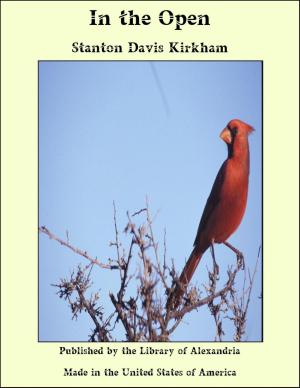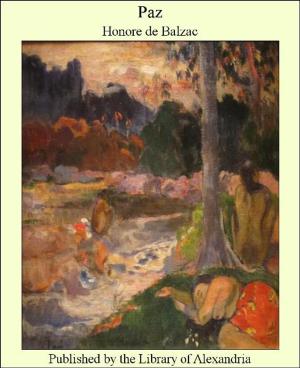The Testimony of the Rocks: Geology in Its Bearings on the Two Theologies, Natural and Revealed
Nonfiction, Religion & Spirituality, New Age, History, Fiction & Literature| Author: | Hugh Miller | ISBN: | 9781465544407 |
| Publisher: | Library of Alexandria | Publication: | March 8, 2015 |
| Imprint: | Language: | English |
| Author: | Hugh Miller |
| ISBN: | 9781465544407 |
| Publisher: | Library of Alexandria |
| Publication: | March 8, 2015 |
| Imprint: | |
| Language: | English |
Palæontology, or the science of ancient organisms, deals, as its subject, with all the plants and animals of all the geologic periods. It bears nearly the same sort of relation to the physical history of the past, that biography does to the civil and political history of the past. For just as a complete biographic system would include every name known to the historian, a complete palæontologic system would include every fossil known to the geologist. It enumerates and describes all the organic existences of all the extinct creations,—all the existences, too, of the present creation that occur in the fossil or semi-fossil form; and, thus coextensive in space with the earth's surface,—nay, greatly more than coextensive with the earth's surface,—for in the vast hieroglyphic record which our globe composes, page lies beneath page, and inscription covers over inscription,—coextensive, too, in time, with every period in the terrestrial history since being first began upon our planet,—it presents to the student a theme so vast and multifarious, that it might seem but the result, on his part, of a proper modesty, conscious of the limited range of his powers, and of the brief and fleeting term of his life, were he to despair of being ever able effectually to grapple with it. "But," to borrow from one of the most ingenious of our Scottish metaphysicians, "in this, as in other instances in which nature has given us difficulties with which to cope, she has not left us to be wholly overcome." "If," says Dr. Thomas Brown, in his remarks on the classifying principle,—"if she has placed us in a labyrinth, she has at the same time furnished us with a clue which may guide us, not, indeed, through all its dark and intricate windings, but through those broad paths which conduct us into day. The single power by which we discover resemblance or relation in general, is a sufficient aid to us in the perplexity or confusion of our first attempts at arrangement. It begins by converting thousands, and more than thousands, into one; and, reducing in the same manner the numbers thus formed, it arrives at last at the few distinctive characters of those great comprehensive tribes on which it ceases to operate, because there is nothing left to oppress the memory or the understanding." But, is this all? Can the Palæontologist but say that that classifying principle, which in every other department of science yields such assistance to the memory, is also of use in his, or but urge that it enables him to sort and arrange his facts; and that, by converting one idea into the type and exemplar of many resembling ones, it imparts to him an ability of carrying not inadequate conceptions of the mighty whole in his mind? If this were all, you might well ask, Why obtrude upon us, in connection with your special science, a common semi-metaphysical idea, equally applicable to all the sciences,—in especial, for example, to that botany which is the science of existing plants, and to that zoology which is the science of existing animals? Nay, I reply, but it is not all. I refer to this classifying principle because, while it exists in relation to all other sciences as a principle—to use the words of the metaphysician just quoted—"given to us by nature,"—as a principle of the mind within,—it exists in Palæontological science as a principle of nature itself,—as a principle palpably external to the mind. It is a marvellous fact, whose full meaning we can as yet but imperfectly comprehend, that myriads of ages ere there existed a human mind, well nigh the same principles of classification now developed by man's intellect in our better treatises of zoology and botany, were developed on this earth by the successive geologic periods; and that the by-past productions of our planet, animal and vegetable, were chronologically arranged in its history, according to the same laws of thought which impart regularity and order to the works of the later naturalist and phytologists.
Palæontology, or the science of ancient organisms, deals, as its subject, with all the plants and animals of all the geologic periods. It bears nearly the same sort of relation to the physical history of the past, that biography does to the civil and political history of the past. For just as a complete biographic system would include every name known to the historian, a complete palæontologic system would include every fossil known to the geologist. It enumerates and describes all the organic existences of all the extinct creations,—all the existences, too, of the present creation that occur in the fossil or semi-fossil form; and, thus coextensive in space with the earth's surface,—nay, greatly more than coextensive with the earth's surface,—for in the vast hieroglyphic record which our globe composes, page lies beneath page, and inscription covers over inscription,—coextensive, too, in time, with every period in the terrestrial history since being first began upon our planet,—it presents to the student a theme so vast and multifarious, that it might seem but the result, on his part, of a proper modesty, conscious of the limited range of his powers, and of the brief and fleeting term of his life, were he to despair of being ever able effectually to grapple with it. "But," to borrow from one of the most ingenious of our Scottish metaphysicians, "in this, as in other instances in which nature has given us difficulties with which to cope, she has not left us to be wholly overcome." "If," says Dr. Thomas Brown, in his remarks on the classifying principle,—"if she has placed us in a labyrinth, she has at the same time furnished us with a clue which may guide us, not, indeed, through all its dark and intricate windings, but through those broad paths which conduct us into day. The single power by which we discover resemblance or relation in general, is a sufficient aid to us in the perplexity or confusion of our first attempts at arrangement. It begins by converting thousands, and more than thousands, into one; and, reducing in the same manner the numbers thus formed, it arrives at last at the few distinctive characters of those great comprehensive tribes on which it ceases to operate, because there is nothing left to oppress the memory or the understanding." But, is this all? Can the Palæontologist but say that that classifying principle, which in every other department of science yields such assistance to the memory, is also of use in his, or but urge that it enables him to sort and arrange his facts; and that, by converting one idea into the type and exemplar of many resembling ones, it imparts to him an ability of carrying not inadequate conceptions of the mighty whole in his mind? If this were all, you might well ask, Why obtrude upon us, in connection with your special science, a common semi-metaphysical idea, equally applicable to all the sciences,—in especial, for example, to that botany which is the science of existing plants, and to that zoology which is the science of existing animals? Nay, I reply, but it is not all. I refer to this classifying principle because, while it exists in relation to all other sciences as a principle—to use the words of the metaphysician just quoted—"given to us by nature,"—as a principle of the mind within,—it exists in Palæontological science as a principle of nature itself,—as a principle palpably external to the mind. It is a marvellous fact, whose full meaning we can as yet but imperfectly comprehend, that myriads of ages ere there existed a human mind, well nigh the same principles of classification now developed by man's intellect in our better treatises of zoology and botany, were developed on this earth by the successive geologic periods; and that the by-past productions of our planet, animal and vegetable, were chronologically arranged in its history, according to the same laws of thought which impart regularity and order to the works of the later naturalist and phytologists.















